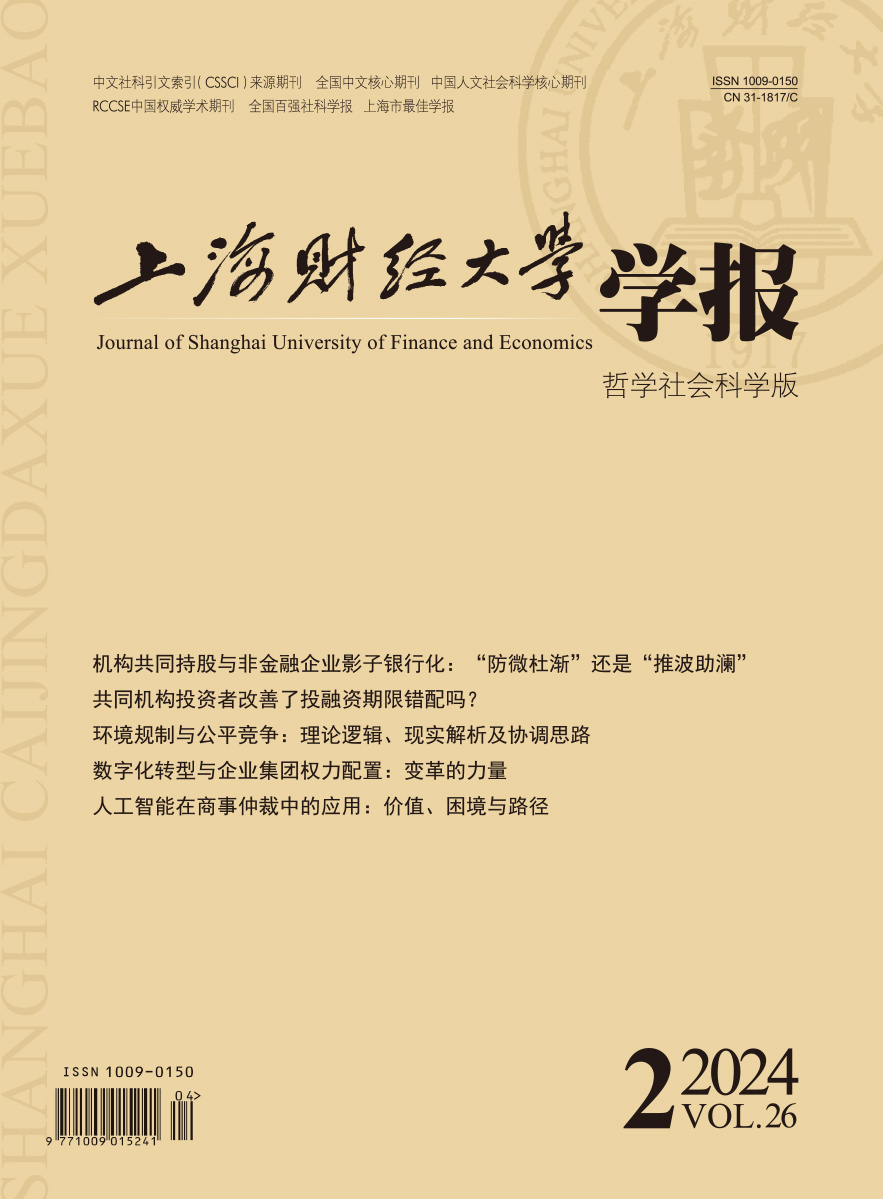The real economy is the foundation of a great nation. However, in recent years, the structural contradiction between the rapid development of the virtual economy and the slowdown of the real economy has become increasingly prominent. More and more non-financial enterprises have been separating financial resources from their core businesses and engaging in shadow banking activities, leading to a serious “divergence from reality to virtual” in the economy. The Sixth Plenary Session of the 19th Central Committee of the Communist Party of China called for upholding the principle of serving the real economy in economic construction and preventing and resolving risks in the economic and financial fields. In this context, it has become an urgent issue to address how to restrain the shadow banking of non-financial enterprises, redirect finance back to the real economy, and promote high-quality economic development. This paper takes China’s A-share listed companies in Shanghai and Shenzhen from 2007 to 2020 as the research object to examine the impact and inherent mechanism of common institutional shareholding on the shadow banking of non-financial enterprises. The findings indicate that common institutional shareholding generally has a significant inhibitory effect on the shadow banking of non-financial enterprises. Mechanism analysis suggests that common institutional shareholding mainly suppresses the shadow banking of non-financial enterprises by alleviating agency problems and promoting physical investment. Further analysis reveals that, in the groups of pressure-resistant shareholders, longer duration of common institutional ownership, and state-owned enterprises, the inhibitory effect of common institutional ownership on the shadow banking of non-financial enterprises is more significant. Compared to shadow banks of “credit intermediary”, common institutional ownership has a more significant inhibitory effect on shadow banks of “credit chain”. In terms of economic consequences, the study shows that common institutional ownership increases the value of corporate stock prices by restraining the shadow banking of non-financial enterprises and reducing the risk of stock price collapse. This paper contributes to a better understanding of common institutional ownership in the capital market and provides valuable insights for policymakers in preventing systematic financial risks and promoting high-quality economic development.
 / Journals / Journal of Shanghai University of Finance and Economics
/ Journals / Journal of Shanghai University of Finance and EconomicsJournal of Shanghai University of Finance and Economics
LiuYuanchun, Editor-in-Chief
ZhengChunrong, Vice Executive Editor-in-Chief
GuoChanglin YanJinqiang WangWenbin WuWenfang, Vice Editor-in-Chief
Common Institutional Ownership and Shadow Banking of Non-financial Enterprises: “Prevent Small Changes” or “Add Fuel to the Fire”
Journal of Shanghai University of Finance and Economics Vol. 26, Issue 02, pp. 3 - 17 (2024) DOI:10.16538/j.cnki.jsufe.2024.02.001
Summary
References
Summary
Cite this article
Huang Danhua, Du Yong, Ma Wenlong, et al. Common Institutional Ownership and Shadow Banking of Non-financial Enterprises: “Prevent Small Changes” or “Add Fuel to the Fire”[J]. Journal of Shanghai University of Finance and Economics, 2024, 26(2): 3-17.
Export Citations as:
For




 3260
3260  2837
2837

